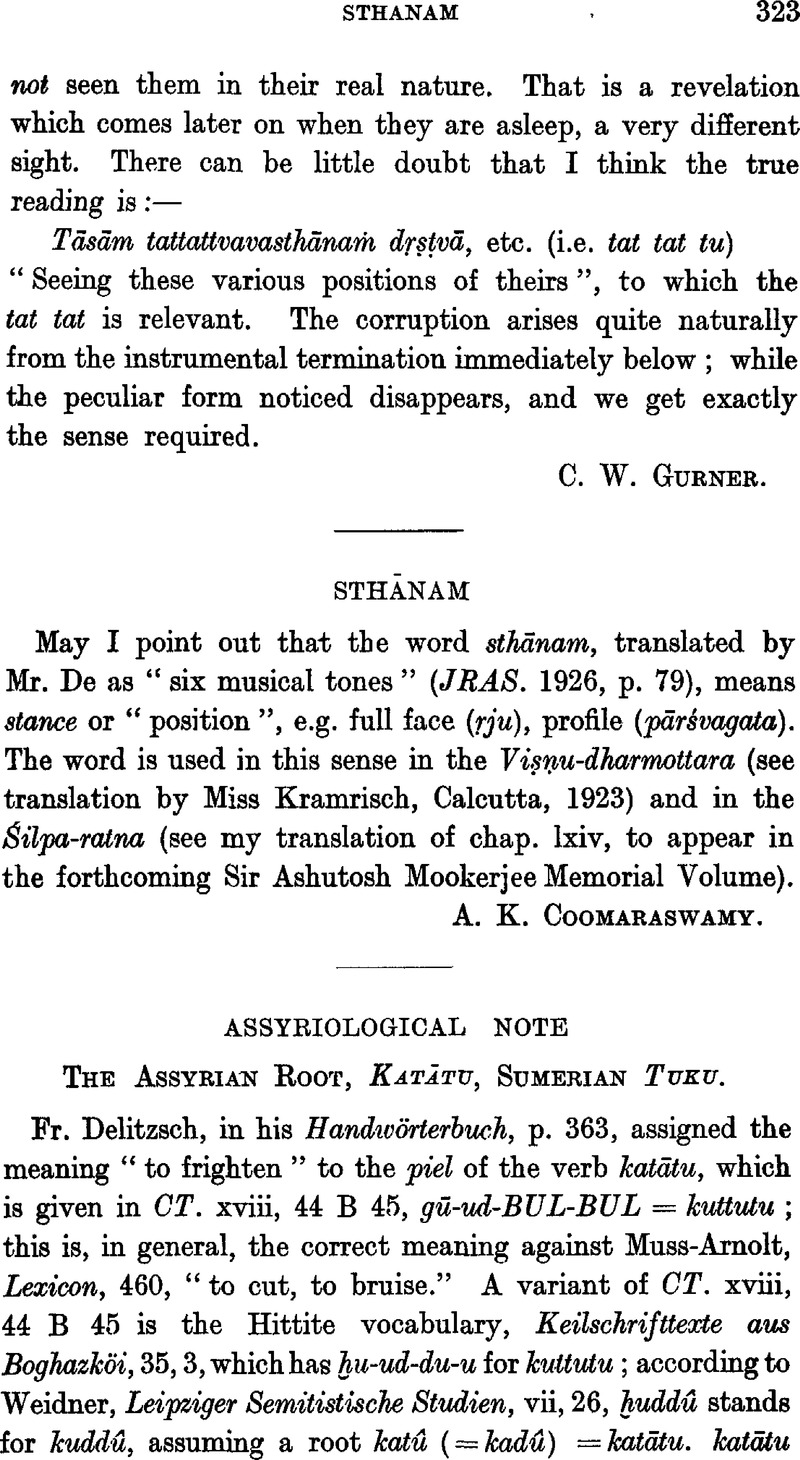No CrossRef data available.

page 324 note 1 For the substitution of k for ḫ at the beginning of a word, cf. ḫamāru >, kamāru, Streck, ZA. xviii, 179, and the values ḫub > kup for the sign ![]() . The inverse change is seen in kam > ḫam for the sign
. The inverse change is seen in kam > ḫam for the sign ![]() , where kam is undoubtedly original. The Sumerians pronounced this sound as a sonant fricative guttural ǵ, and in Sumerian it becomes g.
, where kam is undoubtedly original. The Sumerians pronounced this sound as a sonant fricative guttural ǵ, and in Sumerian it becomes g.
page 324 note 2 This is more probable than my rendering from ḫadû “to rejoice” the phrase is parallel to ikkibu imḫur-anni.
page 325 note 1 Cf. Ungnad, ZA. xxxi, 271.
page 325 note 2 Ungnad's restoration šu-tak-tu-tu is improbable.
page 325 note 3 The word mikû, mekû, does mean “plan, plot, intrigue”, as I stated in my note there. The Sumerian for this wordis A-RÁ, PBS. v, 148,16, a-rá = ṭêmum; MAG. I, 2, 54, 26, a-rá = te-e-mu; K. 4606, 6, a-rá = ši-tu-lum, with me-ku, me-ki-tu, 11. 4–5; King, , Creat., ii, pl. lvGoogle Scholar, Col. II, 24 = Langdon, , Epic of Creation, 200, 81, a-rá = milkuGoogle Scholar; V K. 51, B 28, a-rá-šu in-gar-ra = ana ti-im iškunu, “which he provided for guidance.” The statementin my note has been challenged by many reviewers, but the evidence for its correctness is beyond criticism.